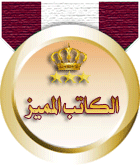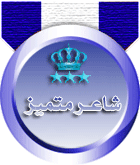The first citizens will arrive on Friday to populate the world's newest self-declared country – Liberland, a tiny patch of woodland and fields on the sandy banks of the River Danube.
The establishment of the pocket-sized nation was declared earlier this month on land wedged between Croatia and Serbia which, its founders argue, was never properly claimed by either country.
Liberland has its own flag, which features an eagle and a sun, a constitution, and a motto – "To live and let live".
Its self-appointed ruler is Vit Jedlicka, a conservative, anti-EU Czech politician and admirer of Britain's Nigel Farage, the leader of UKIP.
 The Liberland flag
The Liberland flagKnown officially as the Free Republic of Liberland, the country's independence was formally declared on April 13.
Some 120 would-be citizens are expected to arrive on Friday for what has been dubbed the state's first Liberty Day.
Prospective Liberlanders are encouraged to bring food, beer and "all necessary equipment for comfortable survival in nature", including tents and sleeping bags.
As yet, there are no houses or other buildings on the no-man's-land sliver of territory.
The first 100 people to turn up to the site, which lies at the end of a dusty road on the west bank of the Danube, will be granted honorary citizenship.
Liberland has not been recognised by any other country, least of all Serbia or Croatia, but that has not stopped 300,000 people around the world from applying for honorary citizenship.
Citizenship is open to anyone unless they have "Communist, Nazi or any other extremist past" or have a criminal record, according to the microstate's constitution.
Liberland's right to exist may be legally questionable but that has not stopped its founders from dreaming of building a thriving, free-market economy – a sort of Balkan Hong Kong, with a large population living in yet-to-be built skyscrapers.
The fact that their new country occupies less than three square miles is no impediment to nationhood, they say – both the Vatican City State and Monaco are smaller.
The founders claim that Liberland is neither a stunt nor an elaborate joke but a serious proposition based on the fact that the patch of land is "terra nullius" – unclaimed by any other country.
"This is about limiting the powers of the state. Governments have grown so big. The system is immoral, but I found that it was impossible to change it from within so we are going to change it from the outside," 'President' Jedlicka told The Telegraph.
"We are part of a great libertarian movement that is growing around the world. "Governments are becoming increasingly unpopular."
Mr Jedlicka says he translated into Czech many of Nigel Farage's speeches and that he hopes to see him one day elected Britain's prime minister.
"I think he's a great chap. I'm a big fan. We are excited at the possibility that Great Britain could leave the European Union. People would be much better off without the EU, with all its crazy subsidies and its thousands of regulations."
Liberland is the latest in a long history of micro-nations that have declared independence, generally on dubious legal and constitutional grounds.
The micro-nation of Sealand was established on a Second World War anti-aircraft gun platform off the coast of Suffolk in 1967 by a former British Army major.
It has a motto: E Mare Libertas, or From the Sea, and issues stamps, coins and passports.
A grain farmer named Leonard Casley set up the Principality of Hutt River in Western Australia in 1970 after falling-out with the authorities over wheat quotas. The 29-square mile plot of farmland grew into a tourist attraction.
Last year Jeremiah Heaton, from Virginia, declared himself the ruler of the Kingdom of North Sudan, an unclaimed patch of desert that he identified between Egypt and Sudan.
He wanted to fulfil the dreams of his seven-year-old daughter, who told him she longed to be a princess.








 المشاركات
المشاركات نقاط
نقاط التقييم
التقييم












